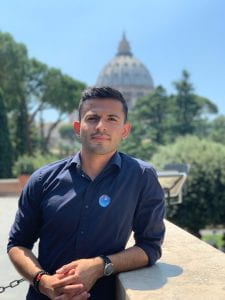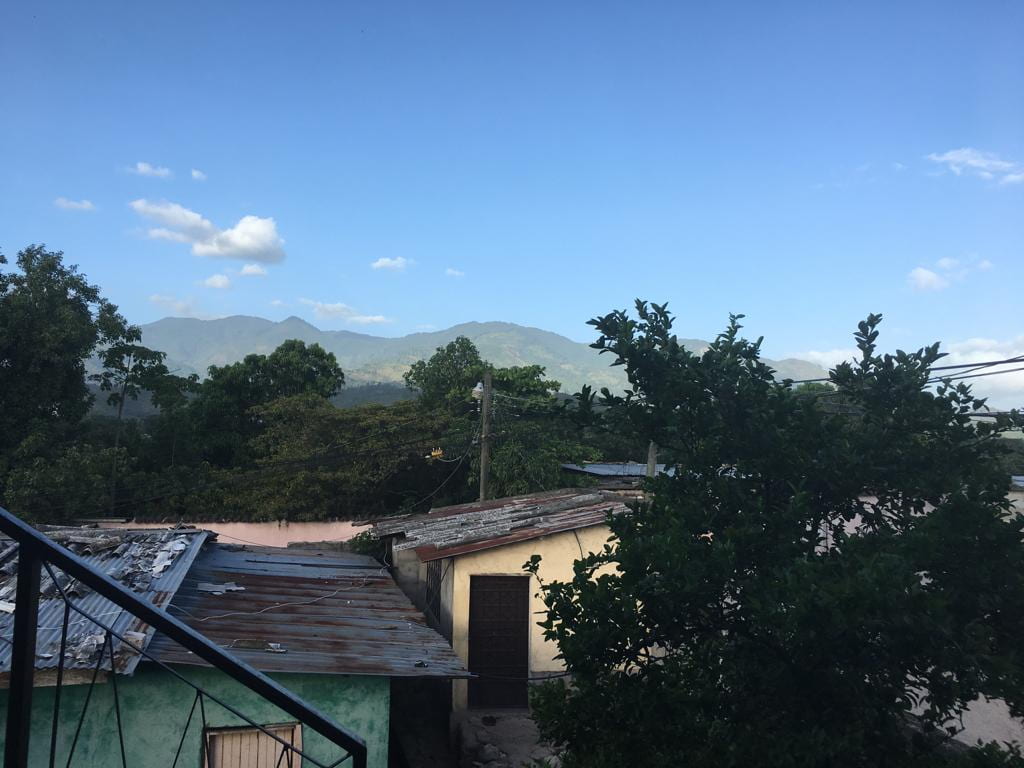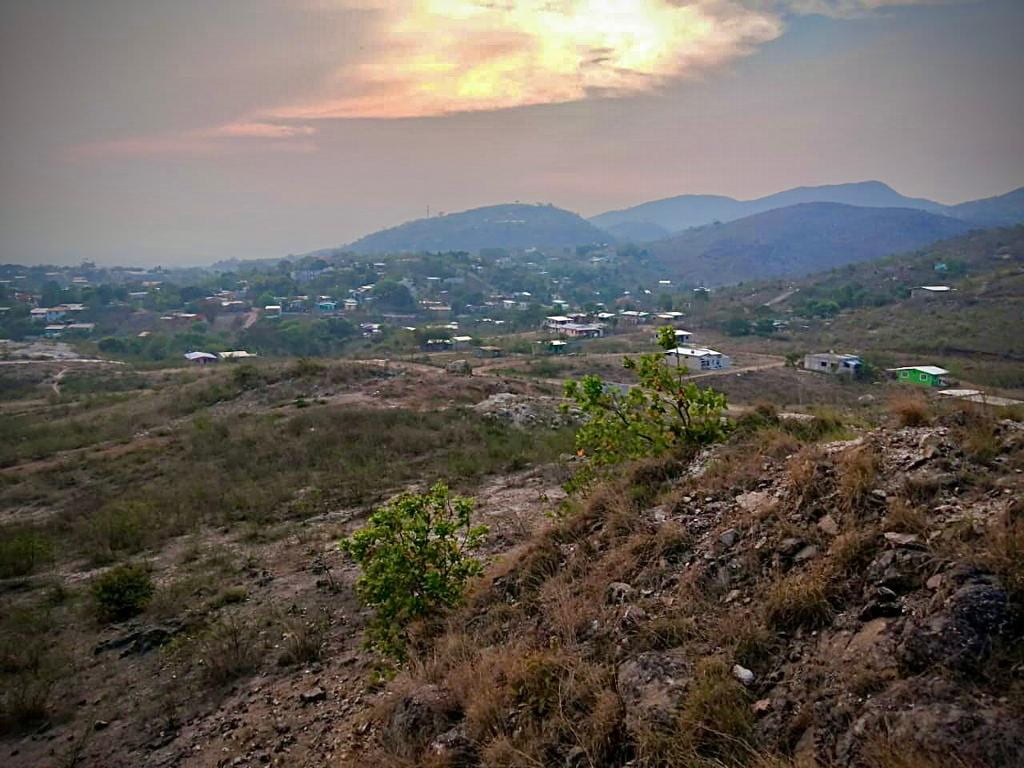
About the Author
Ruben Cruz Valladares is a master’s student at the Harvard Graduate School of Education. He is originally from Honduras, but has also lived in Germany, Italy, New York City and Florida. His goal is to leverage his education and experience to develop Honduras and Central America by creating human-centered, holistic education policies that promote and cultivate the talents of each individual student.
The Journey through the Heart Leads Me Home
I was sweating through my expensive school uniform in the intense Honduran heat that Tuesday afternoon. As I sat in the crowded classroom, I chatted with my classmates while the teacher was preparing the lesson for the day, which was based on rote memorization. I asked Kevin, “Have you seen Samantha today?” He immediately responded on the verge of tears, “Have you not heard the news? Her mother was killed by some gang members.” I was saddened to hear that, especially since she was a friend of mine and I knew how close she was to her mother.
To get my mind off this horrible news, I turned around and asked Carlos if he had seen José. Carlos mentioned that José’s neighborhood had been occupied by a gang and so it was unlikely he would come to school that day. Normally, I would have turned to my good friend Hugo for comfort, but he was not at school that day because he was helping his parents in the informal economy to be able to buy some beans and rice, which had recently increased in price. A few seats away from me, a skinny student had fallen asleep from weakness as a result of not having much to eat at home. I recalled him saying earlier that day that he did not have enough money to buy a snack. I needed to escape.

The author’s school, José Cecilio Del Valle
At that moment, the teacher began to hand back graded assignments and, as he approached me, he said, “Good job, Ruben.” I took a look at my assignment and saw that I had made a 100% on it. I replied to him by saying, “I have to make good grades, sir, because it is my mother’s dream for me to attend Harvard one day and I do not want to let her down because she sacrifices so much and works long hours to support me.” The teacher simply replied, “That’s nice.” He was a realist and never expected me to actually attend Harvard.
Why were my teacher’s expectations rational?
After the coup in Honduras in 2009, gang violence increased to the point of becoming a crisis. In fact, 1,500 students died as a result of gang violence between 2010 and 2018 (Garrett, 2014) in a small country of only nine million people. At the same time, before the Covid-19 pandemic and hurricanes Eta and Iota, 14.8 percent of the Honduran population lived on less than US$1.90 per day and almost half of the population lived on less than US$5.50 per day, the second highest poverty rate in Latin America and the Caribbean after Haiti (World Bank, 2021). Child labor is also another problem in the country since children are forced to engage in the worst forms of labor, including commercial sexual exploitation, begging, vending, performing on the streets for tips and scavenging in garbage dumps. Additionally, gangs use vulnerable children to carry out illicit activities, including selling and trafficking drugs. Gang violence, high rates of poverty and inequality and child labor are all social barriers that entrap children and adolescents in a vicious cycle, with little chance to ever improve their situation.

Rural area where the author grew up.

Now, I am writing this article as a graduate student at Harvard. I am living the American dream and where I am now is far from where I began.
So, how did I end up at Harvard?
The starting point began in March 2010, when my stepfather, who is in the US Air Force, got an assignment to be stationed in Germany, where we would end up living for seven years, followed by three years in Italy. Every weekend, my father and I would go to Café Mohr in Trier, Germany to discuss the world. He would teach me numerous academic subjects and their application to global issues. These café sessions were instrumental to my development and identity. As a former teacher, my father had diverse academic interests and knew how to communicate them with me, but the common theme of our talks was the importance of courage to do the right thing. One day, he told me a story about his Iraqi friend who lived in hiding during the Iraq Civil War (2006-2008) because he had a contract on his life for apostasy. However, that Iraqi friend, Milad, would not surrender his principles. My father then proceeded by saying that Milad told him that love was the key to survival. Milad’s love extended to even his enemies who tried to kill him. Although we live in a dangerous world, I learned that love is the compass to guide us towards success. Reflecting on this story today, I often think about the areas where love has helped shape my life and realize my dreams, such as attending Harvard.
The first person that came to my mind was my mother. In Honduras, she would walk six miles a day, six days a week to give me a better life than she had. Her daily schedule was from 6 a.m. to 1 a.m., because she had to balance work at a clothing store, night school and family. From her, I learned how far a strong work ethic could go. I try to use my parents’ values as my compass in life.

Typical housing in the area where the author grew up

Additionally, living in Europe granted me the opportunity to visit many countries and encounter new cultures, experiences my classmates never got to have. I gained new perspectives about life and confidence that there are solutions to the challenges Honduras faces. As a result, through the café sessions and the love and support of my family, I gained a genuine interest in development economics and education. I wanted to learn and work to improve my country.
My mentor, Dr. Sanjay Reddy at The New School for Social Research, where I did my undergraduate work, pushed me to think critically about development—to view it from a social vantage. Through his constant advice during office hours and our fruitful discussions, I began to think of development as a way to expand people’s freedoms, to provide them with the capabilities that will empower them to live lives that they value. Pursuing development is not about abstract theory or getting a good career for myself. Instead, it is about love and improving the living conditions of my family, nation and humanity, to make sure kids don’t fall asleep in classroom because they didn’t have enough to eat.
Developing capabilities to lead productive lives will require a collaborative effort that includes international organizations, the government and, more importantly, the locals. My schooling experience in Honduras remains very present in my life and, every day, I wonder what has happened to my former classmates. However, my academic experiences in Germany and Italy allowed me to reinvent myself and see the classroom as a world of opportunities. Now that I am at Harvard, I have the capacity to create effective change for my community back home. My goal is to build partnerships with people and organizations and use love for others as a fundamental value to fundamentally alter social structures in order to promote the development of individual students, which, in turn, will develop the societies in which they live.
More Student Views
Puerto Rico’s Act 60: More Than Economics, a Human Rights Issue
For my senior research analysis project, I chose to examine Puerto Rico’s Act 60 policy. To gain a personal perspective on its impact, I interviewed Nyia Chusan, a Puerto Rican graduate student at Virginia Commonwealth University, who shared her experiences of how gentrification has changed her island:
Beyond Presence: Building Kichwa Community at Harvard
I recently had the pleasure of reuniting with Américo Mendoza-Mori, current assistant professor at St Olaf’s College, at my current institution and alma mater, the University of Wisconsin-Madison. Professor Mendoza-Mori, who was invited to Madison by the university’s Latin American, Caribbean, and Iberian Studies Program, shared how Indigenous languages and knowledges can reshape the ways universities teach, research and engage with communities, both local and abroad.
Of Salamanders and Spirits
I probably could’ve chosen a better day to visit the CIIDIR-IPN for the first time. It was the last week of September and the city had come to a full stop. Citizens barricaded the streets with tarps and plastic chairs, and protest banners covered the walls of the Edificio de Gobierno del Estado de Oaxaca, all demanding fair wages for the state’s educators. It was my first (but certainly not my last) encounter with the fierce political activism that Oaxaca is known for.




